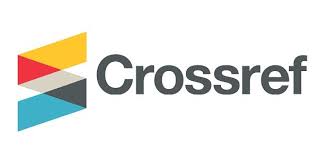THE LAXITY OF CRIMINAL LAW ENFORCEMENT IN INDONESIA AND EFFORTS TO OVERCOME IT
DOI:
https://doi.org/10.33061/wh.v27i1.3843Keywords:
civil law culture, Laxity, Surveillance FunctionAbstract
The laxity of criminal law enforcement lied in the surveillance function in criminal justice management system and civil law culture. Effort needed to be done by empowering functions of broader Supreme Court surveillance, not only surveillance that proceeding in the court but also surveillance from all criminal law enforcement process. Beside that for the sake of actualizing justice in the society, civil law culture required to be used broad interpretation and always updated legal reform.
References
Sudarto. 1986. Hukum Dan Hukum Pidana. Bandung: Alumni.
Sutiyoso, Bambang. 2009. Metode Penemuan Hukum. Yogyakarta: UII. Press.
Criminal Code Advocacy. Lembaga Studi dan Advokasi Masyarakat (ELSAM).
The Main Judicial Authority Constitution (Constitution Number 48 Year 2009).
Constitution Number 2 Year 2002 as regards of Indonesia Republic State of Constabulary.
Constitution Number 16 Year 2004 as regards ofAttorney Indonesia Republic.
Constituent Number 18 Year 2003 as a regards of Advocacy.
Downloads
Published
How to Cite
Issue
Section
License
Copyright (c) 2021 Bambang Ali Kusumo

This work is licensed under a Creative Commons Attribution-ShareAlike 4.0 International License.
Authors who publish with this journal agree to the following terms:
- Copyright on any article is retained by the author(s).
- The author grants the journal, the right of first publication with the work simultaneously licensed under a Creative Commons Attribution License that allows others to share the work with an acknowledgment of the work’s authorship and initial publication in this journal.
- Authors are able to enter into separate, additional contractual arrangements for the non-exclusive distribution of the journal’s published version of the work (e.g., post it to an institutional repository or publish it in a book), with an acknowledgment of its initial publication in this journal.
- Authors are permitted and encouraged to post their work online (e.g., in institutional repositories or on their website) prior to and during the submission process, as it can lead to productive exchanges, as well as earlier and greater citation of published work.
- The article and any associated published material is distributed under the Creative Commons Attribution-ShareAlike 4.0 International License
















.png)


